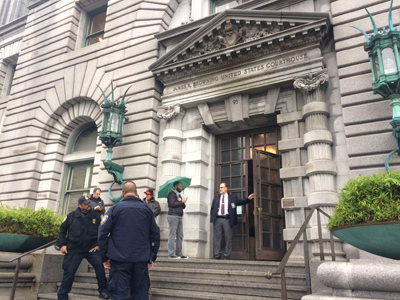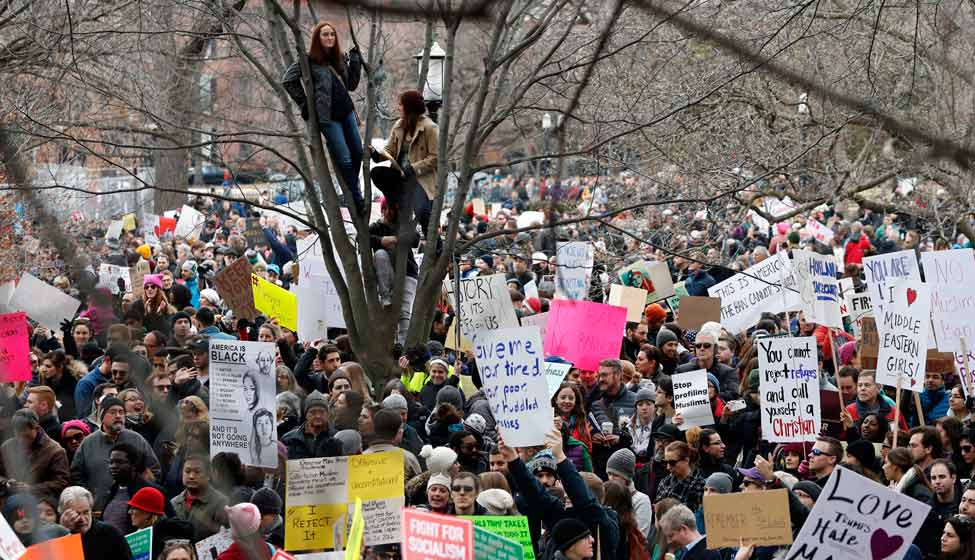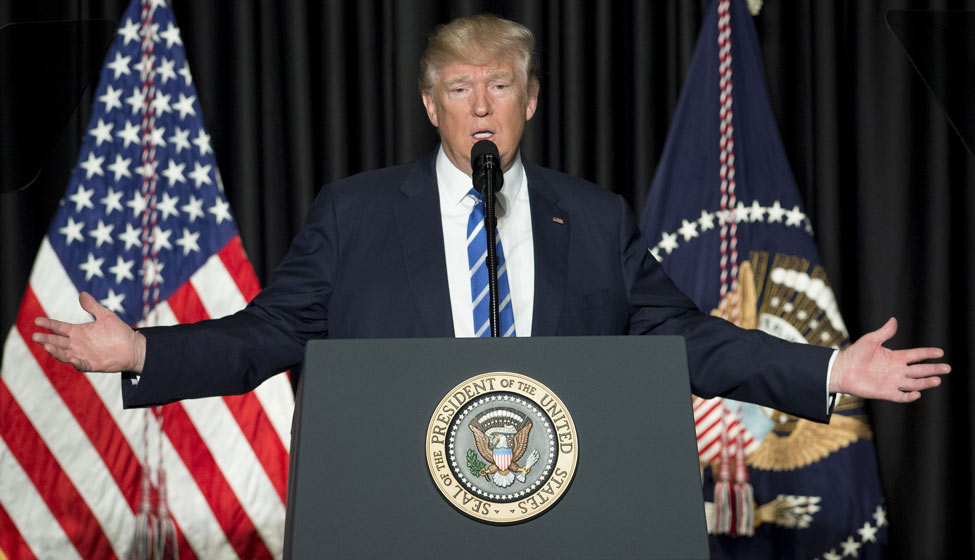On his weekend flight to Florida with visiting Japanese Prime Minister Shinzo Abe, US President Donald Trump said he would be signing a “brand new order” on immigration early this week as his original executive order was quashed by the appeal court. The 9th U.S. Circuit Court of Appeals in San Francisco refused to lift a restraining order on February 9. The appeal followed a ruling by a federal judge in Seattle against the travel ban ordered by the Trump administration.
The presidential executive order on January 27 had barred entry of people from Iran, Iraq, Sudan, Libya, Yemen, Somalia and Syria to the United States. It imposed a 90-day ban on residents from these seven predominantly Muslims countries and a 120-day suspension of refugee intake.
“We will not allow people into our country who are looking to do harm to our people,” Trump said at a White House news conference. The Trump administration is still considering to move the Supreme Court.
The travel ban continues to face stiff resistance from the tech companies.
Around 130 companies, mostly from tech industry, banded together to file a legal brief on February 5 at the appeal court against Trump's order. This is for the first time that Silicon Valley tech firms have come together so vociferously against the federal government.
The signatories included Google, Facebook, Apple, Microsoft, Uber, Airbnb, eBay, Netfix, Twitter and Intel. A few non-tech firms such as Levi Strauss and Chobani have also signed the brief.
The order affected even green card holders from the listed countries who were outside the US. Tech companies reacted swiftly. They asked their overseas staffers to rush back to the US.
Faced with disruptions following the ban order, several tech firms collected contributions to fight the executive order legally. Companies offered free service to help out those affected by the order. Travis Kalanick, CEO of Uber, quit Trump’s business advisory team in protest. Workers under the banner of Tech Solidarity took out rallies in New York, Seattle, Boston, Portland and other cities.
The amicus brief of the tech firms said the order was “a significant departure from the principles of fairness and predictability that have governed the immigration system of the United States for more than fifty years.”
 9th U.S. Circuit Court of Appeals in San Francisco. Photo: AP
9th U.S. Circuit Court of Appeals in San Francisco. Photo: AP
Here are the chief arguments being raised by the tech circle
Immigrants or their children founded more than 200 of the great iconic companies on the Fortune 500 list. These giant corporations created huge wealth of about $4.2 trillion and created millions of jobs for Americans.
Immigrants are among the great inventors, entrepreneurs, political leaders, scientists and artists. They continue to be a driving force in the American economy.
Tech firms rely on foreign workers for ideas and talents from diverse backgrounds. A ban would hurt diversity, which is crucial for innovation and growth of American companies. It puts barriers to bringing great talent and investment to the US. The ban could impair the ability of US companies to compete globally.
The blanket ban on a few countries inflicts significant harm to the US economy in general.
The order disrupts ongoing business operations as a good number of workers belong to the banned countries. Talented immigrants contributed to the tech industry, growth and prosperity of the United states and the world.
The ban order polarises the American society and alienates a section of people. In order to become a healthy inclusive society, we have to find means to connect people, not separate them.
Actions of the federal government restrict international trade.
The US is a nation of immigrants. People of all ethnicity should have the same opportunity in the US. People wait for long years to come to the US. Closing doors on countries or saying no to alien refugees is ‘un-American’. The ban affects the country’s global image. It fundamentally contradicts American values and multinational culture of the corporates.
Blanket entry ban on citizens from a few Muslim countries is not the best way to make America safe.
 Protesters demonstrate against President Donald Trump's executive order that bars citizens of seven countries from entering the U.S, in Lafayette Park, near the White House, Washington. Photo: AP
Protesters demonstrate against President Donald Trump's executive order that bars citizens of seven countries from entering the U.S, in Lafayette Park, near the White House, Washington. Photo: AP





